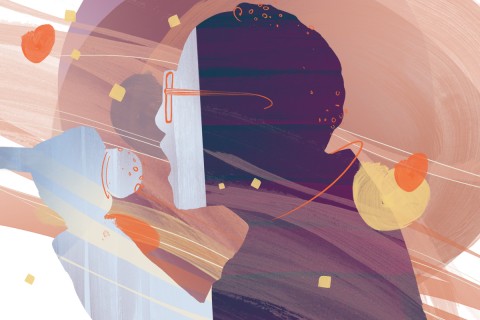Staying in a culture of leaving
My parents arrived in the US with three suitcases and two toddlers. I’ve experienced wanderlust ever since.

I am, by nature, a leaver. Once a relationship, job, or any other arrangement that assumes commitment gets to be challenging, I fantasize about the next, better thing I can dash off to.
The urge to move on may be in my DNA. Like many Korean immigrants during the 1980s, my parents were allowed entry to the United States through a student visa for my dad, who received admission to a graduate program in architecture at Tulane University. They arrived with a semester’s worth of tuition and living expenses, three suitcases, and two toddlers. The rest of their belongings and relational ties were left behind in South Korea, a world away. One of our first homes in the US was a cramped studio apartment where the four of us slept on one queen-size mattress on the floor. I could touch the kitchen cabinets from our bed.
Conversations about what my brother and I wanted to do when we grew up were our bread and butter, or rather, our kimchi and rice. One week, I’d dream of being a San Francisco–based journalist traveling the world; the next, I’d want to be an Ivy League philosophy professor. This dreamer spirit made my childhood fun and imaginative—our reality seemed to have no bounds. It wasn’t until my late 20s, when I was planning my wedding, that I began to feel, for the first time in my life, homesickness for a place and community I never had.




